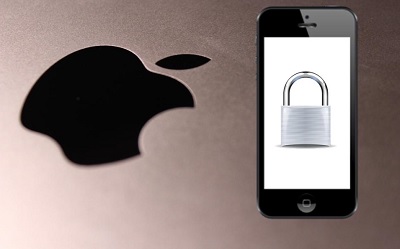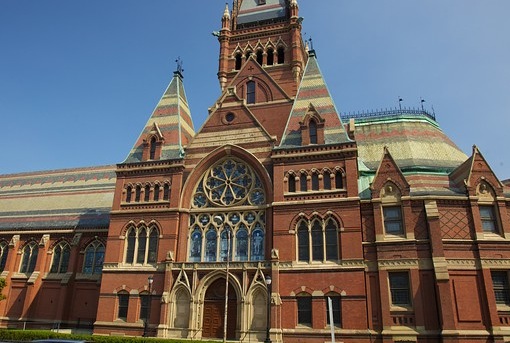BWild |
February 25, 2016
The iPhone maker is urging the American government to do this as it fights demands to unlock a San Bernardino shooter’s phone.
Apple Inc. is currently in the middle of a high profile battle in mobile security and encryption, as the company resists the demands being made by the government of the United States, in which the tech giant is being ordered to unlock the iPhone used by one of the San Bernardino shooters.
The company has now urged the American government to create a panel of experts or a commission for this subject.
The purpose of the commission being requested by Apple, would be to discuss the implications of this type of order on national, personal and mobile security, among other issues and freedoms. On the company’s own website, it shared a post entitled “Answers to your questions about Apple and security,” in which it said that “Apple would gladly participate in such an effort.” The iPhone maker went on to explain that “the best way forward would be for the government to withdraw its demands” to unlock the smartphone.
The FBI made the request of the company to break the mobile security barriers in the device, as a part of their investigation.
 The Federal Bureau of Investigation says that it wants to be able to access the contents of the iPhone used by Syed Rizwan Farook as a part its examination of the evidence that was created before the shootings in San Bernardino. Apple is being ordered to disable some of the passcode protections on the device.
The Federal Bureau of Investigation says that it wants to be able to access the contents of the iPhone used by Syed Rizwan Farook as a part its examination of the evidence that was created before the shootings in San Bernardino. Apple is being ordered to disable some of the passcode protections on the device.
On December 2, Farook and another man, Tashfeen Malik, opened fire at a holiday party in San Bernardino, California, murdering 14 people and leaving another 22 people injured. A police shootout ensued and both attackers were killed.
In response to the demands that it has received, Apple has said that, while it is technically able to unlock the iPhone through the creation of a new operating system, a precedent could be established that might lead to dangerous situations in mobile security and privacy freedoms. It underscored the fact that it has never unlocked a smartphone on behalf of law enforcement, though it has previously extracted data from one of its devices that had been operating on an older version of iOS when following a “lawful court order.”
The U.S. Department of Justice has now filed a motion to attempt to force Apple’s compliance in breaking through the mobile security of the device and unlock the iPhone.
Tourists head to the ivy league university every day and now they are seeing it in a whole new way.
Harvard has now launched a new official university tour app that uses augmented reality technology and other features to provide visitors with an enhanced version of the more traditional form of audio tour that is often seen in museums.
The new mobile app is called the Harvard Official Mobile Tour and is currently available to tourists.
This application represents the first project that was taken on by PIVOTtheWorld, which is a startup operating out of the Innovation Lab at the university. Visitors to the campus simply need to download the mobile app, install it and launch it. Then, when they point their device at any of the 23 different applicable “pivot points,” that is, landmarks throughout the Harvard grounds that have been selected to be a part of the tour, they can learn about those spots through augmented reality features.
The augmented reality app lets a visitor see what the pivot point looked like, back in time, when it was new.
 The pivot points are typically buildings or statues, some of which date back by centuries. Some of the old images are photographs, while others are paintings, as many of the pivot points are much older than photography. The idea is to be able to use the AR technology to be able to look at the way that specific place has changed over the years, while the visitor is able to learn more about what they are seeing.
The pivot points are typically buildings or statues, some of which date back by centuries. Some of the old images are photographs, while others are paintings, as many of the pivot points are much older than photography. The idea is to be able to use the AR technology to be able to look at the way that specific place has changed over the years, while the visitor is able to learn more about what they are seeing.
PIVOTtheWorld is a company that was first founded by husband-and-wife team Asma Jaber and Sami Jitan, following the death of Asma Jaber’s father. Her father, originally a Palestinian, moved to the U.S. in the late 1960s. Jaber was raised to hear the stories of the world he had first called home. When he died, she had only recently graduated from the John F. Kennedy School of Government at Harvard. Despite the fact that she had lived her life in rural South Carolina and then went to university at Harvard, she said she “grew up with a vivid image of Palestine.”
Her husband, Jitan, is an anthropologist. Also a descendent of a Palestinian family, he shared in her passion for cultural history. It was that common enthusiasm for the subject that led to the formation of PIVOTtheWorld and the development of augmented reality experiences that would allow people to see more than what is in front of their eyes when they visit a place of historical significance.
 The Federal Bureau of Investigation says that it wants to be able to access the contents of the iPhone used by Syed Rizwan Farook as a part its examination of the evidence that was created before the shootings in San Bernardino. Apple is being ordered to disable some of the passcode protections on the device.
The Federal Bureau of Investigation says that it wants to be able to access the contents of the iPhone used by Syed Rizwan Farook as a part its examination of the evidence that was created before the shootings in San Bernardino. Apple is being ordered to disable some of the passcode protections on the device.
 The pivot points are typically buildings or statues, some of which date back by centuries. Some of the old images are photographs, while others are paintings, as many of the pivot points are much older than photography. The idea is to be able to use the
The pivot points are typically buildings or statues, some of which date back by centuries. Some of the old images are photographs, while others are paintings, as many of the pivot points are much older than photography. The idea is to be able to use the 